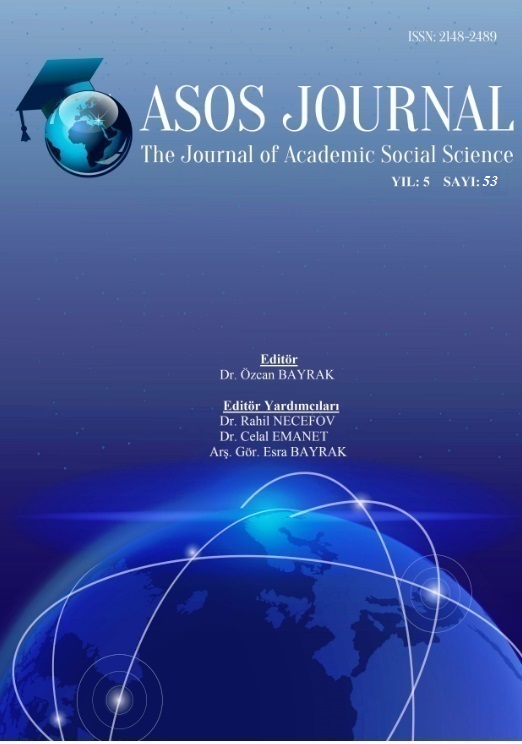Author :
Abstract
Kur’an-ı Kerim’de usve-i hasene olarak belirtilen Hz. Peygamber’in, rivayetlerinin doğru yorumlanması Müslümanların en önemli çalışma ve çaba kaynağı olmuştur. Sahabe, Tabiun, Tebe-i Tabiunun bu konudaki gayretleri takdire şayandır. Peygamberin vefatıyla beraber yaşanan siyasi, sosyal ve ekonomik gelişmelerle beraber yaşanan değişiklikler, sahabenin sünneti farklı şekillerde yorumlaması sonucunu ortaya çıkarmıştır. Nitekim lâfzî, zahiri, ictihadi yorum olarak özetleyebileceğimiz sünneti anlama şekilleri Tabiun ve Tebe-i Tabin döneminde de devam etmiştir. Hadis ve sünnet’in anlaşılması ve yorumlanması meselesi, İslam düşüncesinin teşekkül devrinde, Ehl-i Hadis ile Ehl-i Fıkh’ı ve Kelam ehlini karşı karşıya getirmiştir. Rivayetlerin tedvin ve tasnifiyle beraber bazı rivayetlerin Kur’an-ı Kerim’e, akla, tecrübe ve müşahadeye aykırı olduğunu, hatta bazı rivayetlerin kendi içinde birbirine zıt hükümler ifade ettiğini ileri süren birtakım kelam ve fıkıhçılar olmuştur. Fıkıhla ilgili birbirine zıt hükümler ifade eden rivayetlerin, aralarında bir ihtilaf olmadığı konusunda ilk çalışma yapan Şafii olmuştur. Daha sonraki dönemlerde Tahavi bu rivayetleri incelerken daha sistematik yöntemler kullanmıştır. Kelami ve itikadi konulardaki rivayetler arasındaki ihtilafları ele alarak yorumlayanlardan birisi olan İbn kuteybe bu konuda önemli çalışmalar yapmıştır. Bu rivayetlerin iç tutarlılığını sağlamak için cem ve telif, nesh, tercih, tevakkuf gibi yöntemler kullanan İbn Kuteybe, başarılı sayılabilecek yorumlar yapmıştır. Bazen, birtakım rivayetlerin yorumuna karşı sergilediği savunmacı ve tepkisel durum onu zor durumlara düşürebilmiştir. Buna ilaveten eserlerinde sahih olmayan rivayetleri yorumlamaya çalışması da uyguladığı yöntemdeki başarısını azaltmaya sebep olabilecek bir diğer nedendir. Bütün bunlara rağmen İbn Kuteybe, rivayetlere getirdiği yorumlarla günümüze kadar etkisini gösteren değerli bir hadis âlimimizdir.
Keywords
Abstract
Specified as uswa hasana in the Holy Koran, accurate interpretation of the Prophet (bpuh) has been the most significant origin of work and effort for Muslims. Efforts of the Companions, Tabi’un, and Tabi' al-Tabi'un on this matter are worthy of respect. Changes occurred with political, social and economic developments following the death of the Prophet have resulted in different interpretations of Sunnah by the Companions. The concept of understanding which can be summarized as literal, virtual and ideological have continued during the Tabi’un, and Tabi' al-Tabi'un eras. The issue of understanding and interpreting Hadith and Sunnah has made Ahl al-Hadith and Ahl al-Fiqh oppose each other during the formation of Islamic ideology. Following codification and classification of the rumors, there have been some theologians and Fiqh experts who claimed that some rumors are against the Holy Koran, mind, experience and observation and some rumors even include judgements that contradict in itself. Al-Shafi’i was the first person to do a research in an effort to prove the Fiqh rumors have no controversies among themselves. Al-Tahawi has used more systematic methods while studying these rumors in later periods. Interpreting by addressing the controversies of rumors relevant to Kalam and faith, Ibn Qutaybah has made significant studies in these topics. Employing methods like totalization, reconciliation, abrogation, preference and standstill to ensure inner consistency of these rumors, Ibn Qutaybah has made some interpretations which can be deemed successful. However, the defensive and reactive behavior he has displayed against interpration of some rumors has put him in a difficult situation. Moreover, his effort to interpret some illegitimate rumors in his work has a nature which may decrease his success in this method. Nevertheless, Ibn Qutaybah is an esteemed hadith expert whose interpretations on rumors have shown their effects up until this day.





